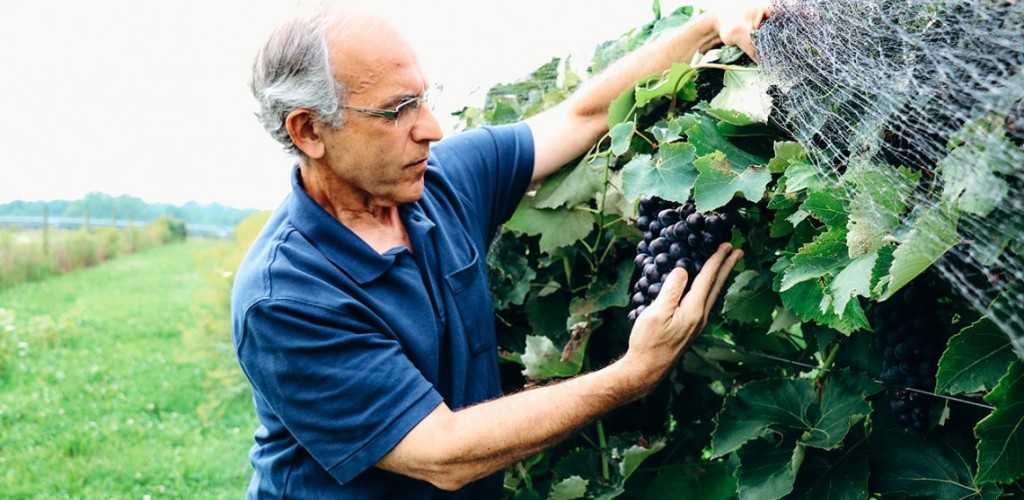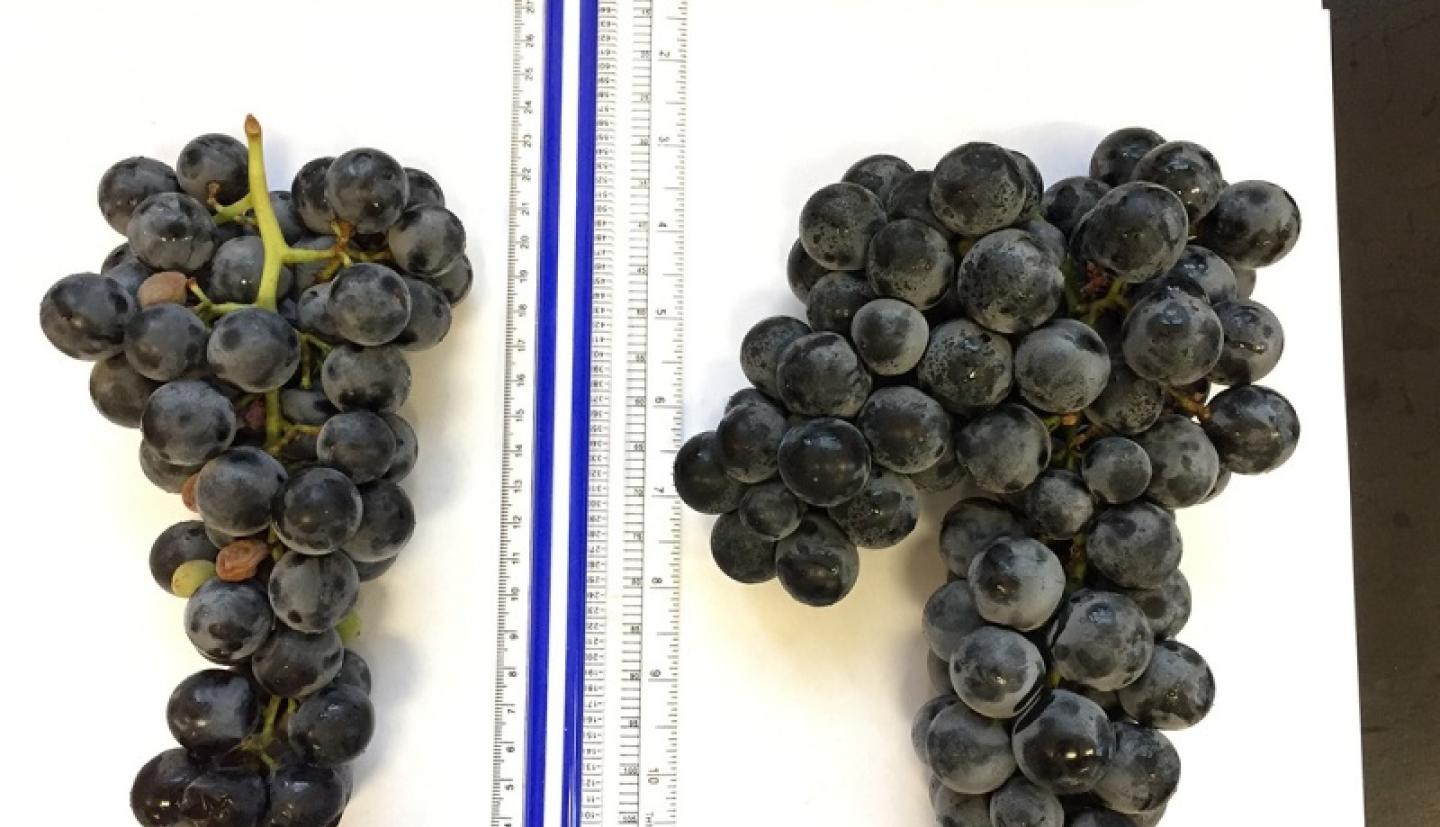The newest offering from Cornell’s grape breeders is a fruit that’s big, bold and comes with a towering history.
Those factors led the grape’s breeders to name the new variety Everest Seedless, a nod to the celebrated Nepalese mountain, said Bruce Reisch ’76, professor of horticulture in the College of Agriculture and Life Sciences, and grape breeder with Cornell AgriTech in Geneva, New York.
“We were looking to develop very flavorful grapes with large berries and large clusters, and we’ve achieved that with Everest Seedless,” Reisch said.
The new variety is a cold-tolerant, blue-colored Concord-type, with berries that weigh up to 7 grams – roughly twice the size of the traditional Concord. It is also the first truly seedless Concord-type grape ever released. It’s intended as a table grape – meant primarily for eating fresh, rather than using for jams, juice or wine, as most American Concords are used.
To breed a grape that’s seedless and nearly double the size of a Concord, Reisch used a unique genetic approach. Most cultivated grape varieties contain 38 chromosomes, but some contain 76 chromosomes (known as “tetraploid grapes”). The larger number of chromosomes results in naturally larger berries, but breeders have to be careful to match their crosses with varieties with an equal chromosome number.
In the 1980s, Reisch traveled to Japan, and collaborated with plant breeders there to gather pollen from some of their 76-chromosome grape varieties.
The ancestry of Everest Seedless includes two of those Japanese varieties, Kyoho and Pione, as well as the classic American Concord and Niagara varieties. Everest Seedless also descends from several other Cornell-developed grapes, such as Himrod and Ontario.
The grape that became Everest Seedless resulted from a cross made in 1998 and was first planted in 1999. It has since been field-tested at several locations.
“Everest is one of the largest mountains in the world, and this is one very large grape,” Reisch said. “With its formidable ancestry and big flavor, we feel this variety can live up to its name.”
The grape is tolerant of midwinter temperatures as low as 10 to 15 degrees below zero Fahrenheit, making it suitable for most of the grape-growing regions in New York, and into the Midwest. It’s moderately resistant to downy mildew and powdery mildew, the most troublesome grape diseases in the Northeast.
Insects don’t seem to bother these grapes, according to Reisch, who said the variety has thrived in research vineyards where insecticides are not applied, but insects could be a problem at other locations.
Because the grapes are relatively easy to grow and produce large, flavorful, seedless berries, Reisch predicts they will become popular with home gardeners as well as professional growers. Everest Seedless is being exclusively licensed in the U.S. to Double A Vineyards of Fredonia, New York, for 10 years, and vines can be purchased from them starting this fall.
“Double A Vineyards has worked with Bruce Reisch and Cornell to provide many of the releases from their breeding program,” said Dennis Rak, owner of Double A Vineyards. “We are especially pleased to partner with them in promoting Everest Seedless. It is a unique grape that we feel has a bright future.”
Last year, Reisch’s team solicited name suggestions for this variety and received nearly 1,600 submissions from around the world, but the team could not find a name that would work. They needed a name they could trademark, that was not already in use among vineyards or wineries, and that could help describe the fruit. Previous attempts to crowd-source a new grape variety name have been successful. In 2012, Reisch’s team named two new wine grapes, Arandell and Aromella, based on public suggestions.
For information on licensing this or any other Cornell grape varieties, JML73 [at] cornell.edu (email Jessica Lyga) of the Cornell Center for Technology Licensing or call 607-255-0270.







